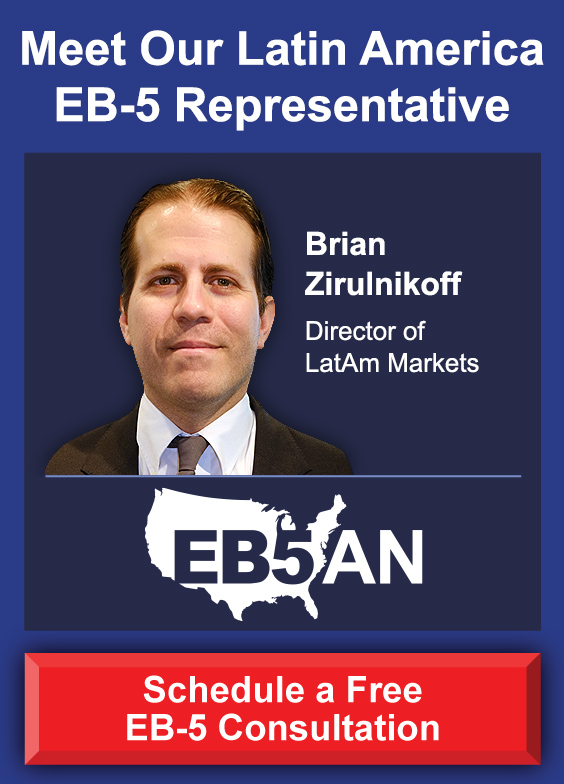Recent delays in the processing of Chinese EB-5 applications caused by retrogression quotas have caused many parents to seek to have their minor children named as primary investors in an I-526 petition. Whereas these children would otherwise have aged out of the system at 21 and therefore have been ineligible to immigrate as derivative beneficiaries with their parents under the EB-5 Program, being named as a primary applicant allows a child to later obtain a green card.
However, the issue of minor applicants poses certain legal risks to EB-5 projects and investors. This article discusses how this procedure is viewed under U.S. and Chinese law and how investors might approach the need to name a minor as a primary applicant for an EB-5 petition.
Minor Investors under U.S. Law
While United States Citizenship and Immigration Services (USCIS) regulations do not require that an EB-5 investor be of legal age to sign a contract, U.S. law makes such contracts risky for all parties involved with the EB-5 project. State laws specify that minors under a certain age, which varies from state to state but usually falls between 18 and 21, are not considered legally competent to sign contracts. Because of this, a minor investor who signs a subscription agreement would have the right to later void that agreement and reclaim the investment, meaning both investment funds and escrow banks will generally not accept funds from minor investors.
Despite this, USCIS considers 13 to be the maximum age at which a child can pay a reduced fee when filing an I-485 petition for permanent resident status, while children over 14 must pay the full adult fee. While not stated explicitly, this implies that minors over age 14 would be considered adults for the purposes of filing the original I-526 petition, as well. Additionally, USCIS has accepted minors as principal applicants for other employment visas, such as the EB-1A visa for “extraordinary ability aliens.”
These issues remain untested as of this year, however, as no petitions have yet been filed by a derivative child as a principal applicant.
Minor Investors under Chinese Law
Chinese law allows parents or guardians to represent a child in legal matters including the signing of EB-5 subscription agreements. As such, EB-5 projects may wish to specify Chinese law as the governing law to execute such an agreement and other documents required for the EB-5 application to allow the parents to co-sign on behalf of the minor child, who would be considered the primary applicant. The parent would also be required in such a case to attest that he or she is the legal guardian of the minor child, that both are Chinese citizens, that the parent has reviewed all documents signed by the minor child, and that the parent has provided the EB-5 investment funds.
U.S. courts will generally accept the choice of law specified by the parties of a contract, in this case Chinese law as selected by the representatives of the EB-5 project and the investors. As the purpose of a subscription agreement is to allow the minor child to qualify for an EB-5 visa and as the parent has approved of and provided the funds for the investment, a U.S. court would be able to justify the use of Chinese law for the subscription agreement in the face of a legal challenge.
However, investors and EB-5 project representatives should be careful to review any state policies which might preclude the selection of Chinese law for these cases.
U.S. Legal Strategies for Investors
If an EB-5 project is unable or unwilling to select Chinese law for the subscription agreement, investors may be able to rely on other options under U.S. law. Below are two such strategies, these being gifting the funds to a minor or transferring the investment to the investment project outside of escrow.
Gifts or Transfers to Minors
Firstly, the parent or guardian of the child has the option of gifting funds to the minor applicant under the laws of the state where the EB-5 investment fund is based. Under the Uniform Gifts or Transfers to Minors Act, a version of which has been adopted in every U.S. state, parents and other persons are allowed to make a gift to a minor without a formal trust agreement with the provision that the person gifting the funds will control them until the minor reaches the age of majority as defined in that state. Additionally, the instrument conferring the funds must be structured as specified in the laws of the given state.
Because this arrangement means that both the custodian and the minor will be named on the subscription agreement, EB-5 projects adopting this strategy may run the risk of a greater chance for denial of the I-526 petition. While no such cases have yet been tested, the retrogression quotas have made aging out of the derivative immigration option a real possibility, and USCIS may see such cases in the near future, at which point investors will be able to refer to those rulings as a guideline.
Accepting Funds out of Escrow
As mentioned above, escrow banks in the United States are generally unwilling to accept funds from minor investors. If an escrow bank is unable to accept the subscription agreement, it may be willing to facilitate the transfer of the investment to the EB-5 investment fund outside of escrow with certain provisions. In this arrangement, an investor, in this case the minor child, will not receive any repayment from the escrow holdback if his or her I-526 petition is denied. As such, the EB-5 investment fund will need to prepare a separate agreement with the parent and the minor investor to specify that the investors waive both the deposit of their funds in an escrow account and any benefits they would have received if their funds were held in an escrow account.
The two strategies outlined above have not been tested in the context of EB-5 cases, so investors must ensure they work with experienced professionals to protect their assets with the proper legal agreements in the United States.
Future Considerations
Because the Chinese retrogression quotas emerged only in 2015, all procedures surrounding the I-526 applications of minor children as primary investors are part of unexplored legal territory. Demand from Chinese applicants, who represent a large majority of EB-5 investors, continues to grow, so regional centers and other project developers can expect to contend with the minor investor question in the coming years. It remains unclear whether USCIS will accept the strategies outlined above as part of an investor’s EB-5 application, but they have stated that upcoming regulations may address this question.
Of additional concern is the stance of U.S. courts in the case of a dispute. In the meantime, EB-5 investors run risks in adopting these strategies to assign the role of primary applicant to a minor child. Given these limitations, EB-5 investment funds might choose to enter into contracts only with investors who meet the legal age for civil conduct in the target state, though this also carries the risk that any minor children might age out of the opportunity to immigrate to the United States as a derivative under the auspices of the EB-5 Program.
Changes to U.S. law might also resolve this issue. In its current state, the Child Status Protection Act, 8 U.S.C. § 1153(h), allows a child to deduct the amount of time a visa petition has been pending from his or her age. The alternative, to freeze a child’s age as of the date of filing of a parent’s I-526 petition, would allow parents to apply for the EB-5 Program themselves as intended without running out the clock on the potential for their children to immigrate. Congress may very well consider such a change in the coming months as the EB-5 Program is re-evaluated.
The most plausible scenario is that aside from setting a clear age cut-off for principal EB-5 applicants, USCIS will adjudicate each case based on its unique circumstances. Investors and EB-5 project representatives therefore have the freedom to create agreements according to U.S. and Chinese laws as necessary to meet the needs of all parties to an arrangement, including a minor child as the primary investor if necessary. Key strategies as outlined above are to work under Chinese law, to gift the investment funds to a minor child, or to transfer the investment funds to the project out of escrow, but each of these has its drawbacks and uncertainties.
Luckily, with average waiting times that are less than ten years, it is currently unlikely that an investor would need to set up an application with a minor child under 11, as such a child would still qualify as a derivative by the time his or her parent’s I-526 petition were adjudicated. The status of children over 14 remains unclear, with USCIS treating that age as the cut-off for payment of the full adult filing fee for an I-485 petition. Without further clarification, Chinese investors and their U.S. investment fund counterparts must work within the current guidelines and legal limits.










